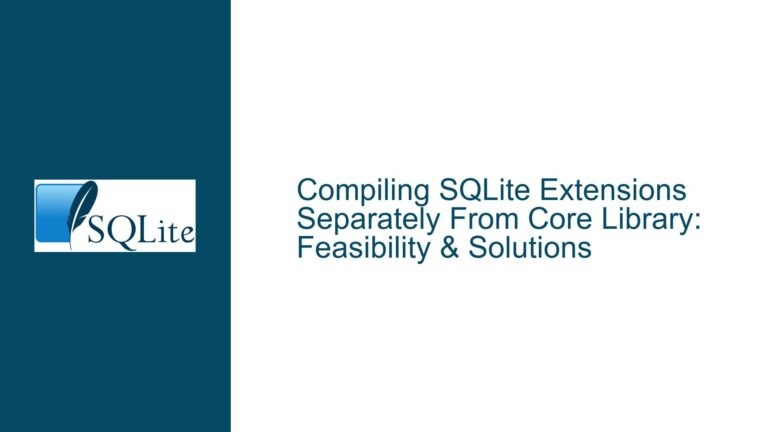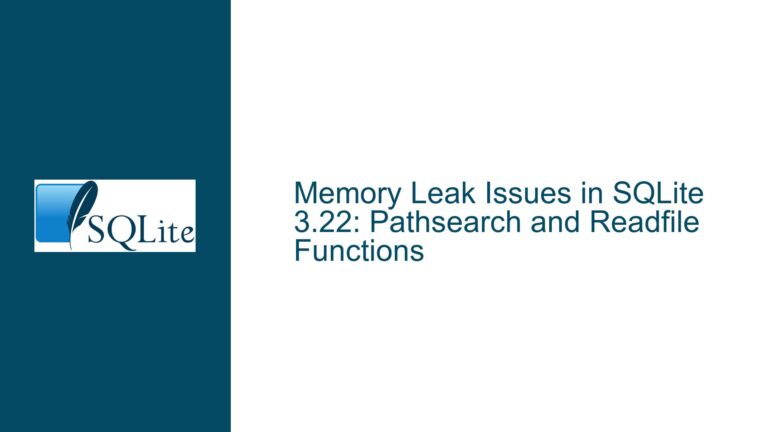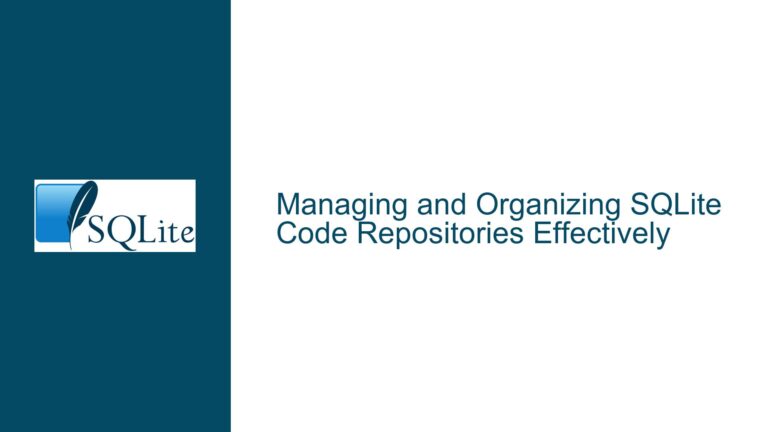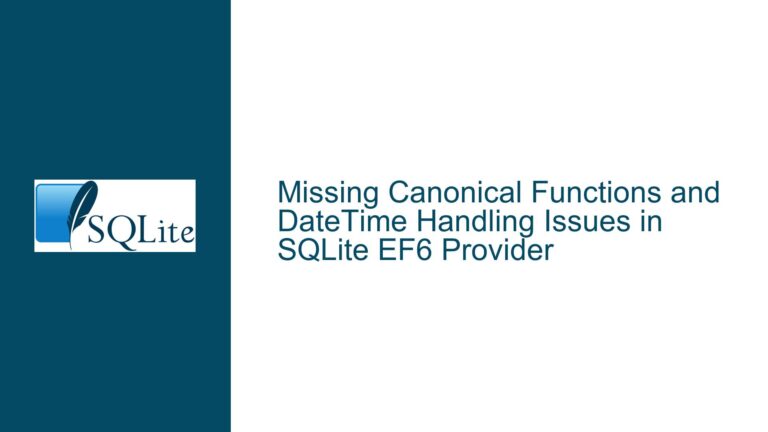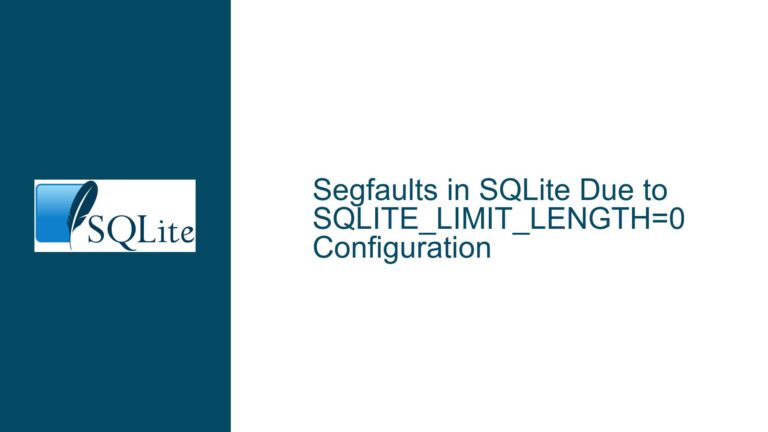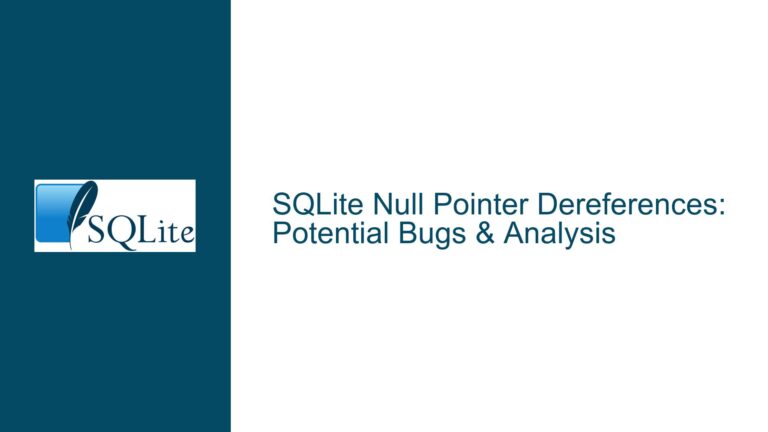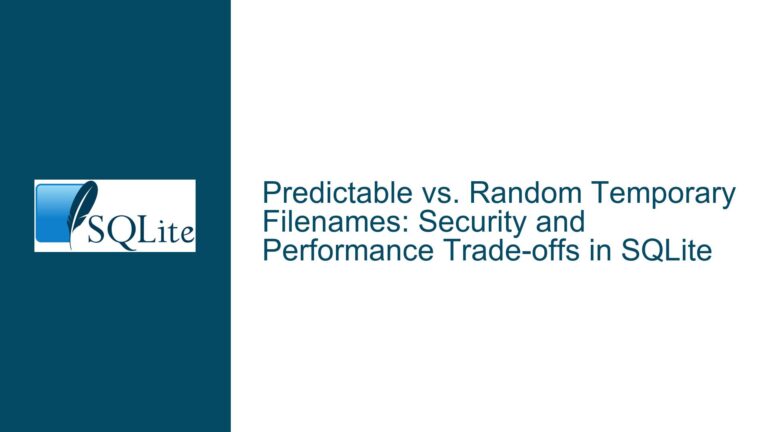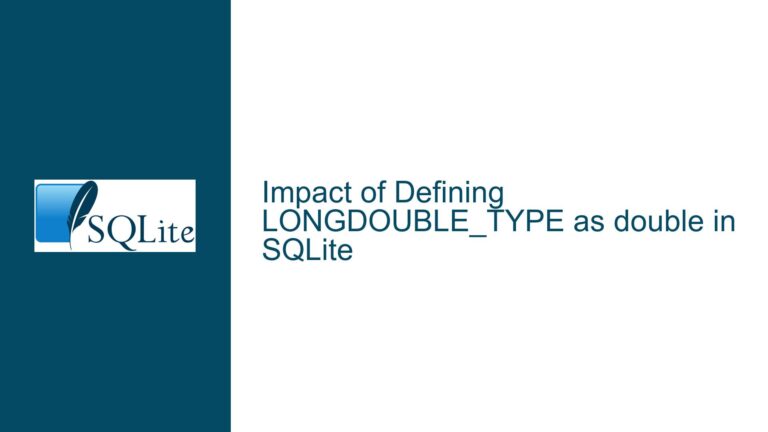Compiling SQLite Extensions Separately From Core Library: Feasibility & Solutions
Understanding the Amalgamation Build Process and Extension Integration The SQLite amalgamation is a single C code file (sqlite3.c) and header (sqlite3.h) that combines the entire core library and its built-in extensions into a unified codebase. This design simplifies integration into projects by eliminating external dependencies. However, this monolithic structure raises questions about isolating specific extensions—such…
